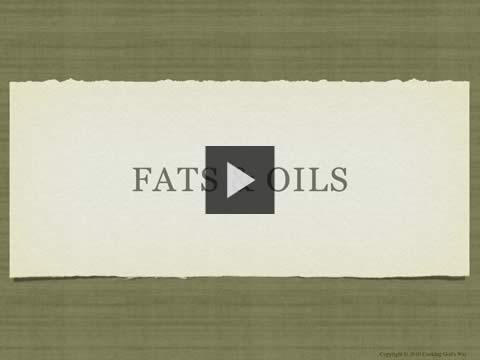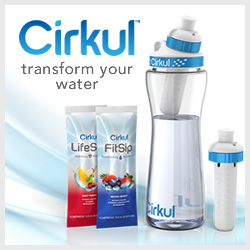| [wp_eMember_compact_login] |
<< Back to eCourse Lesson Menu |
Fats have been demonized by the media, fitness experts, and doctors alike. But the truth is that “healthy” fats are important for proper body function and overall good health. The human body uses fatty acids to do everything from building cell membranes to performing key functions in the brain, eyes, and lungs.
The functions of Fats include:
Brain – 60% of the brain is composed of fats – these are essential to brain function; including learning abilities, memory retention and mood. Fats are very important for pregnant women, since they are vital to fetal brain development.
Cells – Fatty acids help your cells stay flexible and are responsible for building cell membranes.
Heart – 60% of the heart’s energy comes from burning fats. Specific fats are used to help keep the heart beating in a regular rhythm.
Nerves – Fats compose the material that insulate and protect the nerves, isolating electrical impulses and speeding their transmission.
Lungs – The lungs cannot work without adequate saturated fats in the diet.
Eyes – Fats are essential to eye function.
Digestion – Eating fats in a meal helps to slow down the digestion process, giving the body more time to absorb nutrients. Fats help provide a constant level of energy and also keep the body satiated for longer periods of time. Fat-soluble vitamins (A, D, E, and K) can only be absorbed if fat is present.
Organs – Fats cushion and protect your internal organs.
Immune System – Some fats ease inflammation, helping your metabolism and immune system stay healthy and functioning properly.
If we don’t get enough fats in our diet, we can suffer various symptoms such as – dry skin, hair loss, low body weight, cold intolerance, bruising, poor growth, lower resistance to infection, poor wound healing, loss of menstruation (in women), and so on.
Before we get into the good fats vs. the bad fats, please take a look at the video below.
Bad Oils (strictly avoid) |
|
|
Hydrogenated Oils – these oils are known to cause a myriad of health problems ranging from coronary heart disease, to diabetes type II, to cancer, autism, food allergies and autoimmune diseases. The body just doesn’t know what to do with these hydrogenated / partially hydrogenated oils. |
Cottonseed Oil – this oil is highly processed, GMO, contains natural toxins and has very high levels of pesticide residues. Once more cottonseed oil is from a plant used to make textiles…not a plant meant to be eaten. Research is being done in China using cottonseed oil as a male oral contraceptive. |
|
Soy Oil – soy interferes with thyroid fuction, increases the body’s need for Vitamin D, is a Trypsin inhibitor, blocks the absorption of proteins / minerals, is very estrogenic, high in free glutamic acid (MSG), and is a very potent neurotoxin. Read more about Soy… |
Margarine – a chief culprit in the current plague of cancer and heart disease. High in trans fats, this spread is typically made by the process of hydrogenation with soy, cotton, and/or corn oils. |
|
Canola Oil – Canola comes from the Rapeseed plant, a member of the mustard family, it was genetically engineered and developed in Canada. Rapeseed oil makes an excellent insect repellent. As evidence, Canola oil is registered with the EPA as a pesticide. Read more about Canola… |
Other Oils to watch out for – |
Hydrogenated oils are molecularly changed oils that are toxic to the body. Consuming these “Bad” fats has been shown to cause a number of health problems; ranging from coronary heart disease, atherosclerosis (a build up of plaque & hardening of the arteries), diabetes type II, cancer, autism, food allergies and autoimmune diseases. These oils are especially harmful to children.
So it is very important to strictly avoid these fats. But we shouldn’t avoid ALL fats…our body needs fats to function. Let’s take a look at some “healthy” fats that will actually nourish our bodies.
Good Fats/Oils (important for optimum health) |
|
|
Virgin Coconut Oil – this oil is high in medium-chain fatty acids (MCFAs). It is one of the healthiest oils out there. Abundant in lauric acid – which is a proven antiviral, antibacterial, and antifungal agent that is also found in Mother’s milk. Coconut oil is a great immune booster and one of the easiest fats to digest, as it doesn’t rely on bile salts. |
Virgin Palm Oil – this oil is high in vitamin A and Carotenes (known to protect against cancer and heart disease). Regular consumption of palm oil has been shown to reduce the risk of developing cancer.Palm oil is used all across tropical Africa, West Africa, the Caribbean, and South America. Look for color when buying this oil…it should be “red” if the nutrients are still intact. |
|
Extra-Virgin Olive Oil – is a tasty oil, rich in monounsaturated fat, which help to ride the body of inflammation. Olive oil is a functional food that is also rich in antioxidants, chlorophyll, carotenoids, and polyphenolic compounds (tyrosol, hydrotyrosol and oleuropeinand phenolic compounds). All which give this oil a variety of protective effects. When shopping, look for extra-virgin “organic” olive oil that has been cold-pressed. |
Butter – contains many nutrients that protect us from heart disease – such as vitamin A, vitamin E, selenium, and lecithin. Butter is rich in short and medium chain fatty acid chains that have strong anti-tumor effects. Grassfed butter contains the X factor, which is important in the utilization of minerals, protection from tooth decay, growth and development, reproduction, protection against heart disease and the function of the brain. |
When at the market shopping for “good fats”, it is important to look for cold-pressed oils that have been processed without heat. These oils still retain most nutrients, and are in a more natural state (minimally processed).
These “good fats” can provide our bodies with needed, lasting energy; keeping you feeling full longer. They also help to prevent essential fatty acid deficiency, help your body to absorb fat soluble vitamins (A, S, E, K) and prevent deficiencies of these vitamins, and help your body produce endorphins (natural substances in the brain that produce pleasurable feelings).
Another great thing about these healthy fats is that they provide flavor and texture to your food, preventing it from being bland and dry.
Diets too low in fat (less than 20 – 25%) may trigger cravings.
Moderate Fats/Oils (limited consumption) |
|
Sesame Oil / Sunflower Oil / Grapeseed Oil – These oils are all HIGH in omega-6’s. Which we can very easily get plenty of in our diets every single day. Use these oils sparingly, and not on a daily basis. |
It’s quite easy to get omega-6s in our diet, but not as easy to get omega-3s. The typical Standard American Diet (SAD) has a ratio of 20:1 to 40:1, of omega-6 to omega-3. For optimum health, our diets should consist of a 2:1 ratio of omega 6 to omega 3. A diet high in these omega-6s can cause excess inflammation in the body (see lesson 4). This is why it is important to use Sesame Oil, Sunflower Oil, and Grapeseed Oil very sparingly….not everyday.
Lesson Assignment: Look in your pantry, if you have any of the “bad oils” around now is the time to throw them out. Start incorporating some of the “good fats” into your diet, especially virgin coconut oil. You will see improvement in your overall health by consuming these “healthy fats” on a regular basis.
Are you already using some of the healthy fats in your diet? Have questions? Let’s share and discuss these fats with each other with a comment below.
Sources:
David Lawrence Dewey / WHFoods.com / Eat Fat, Lose Fat by Mary G. Enig & Sally Fallon /
Weston A. Price Foundation
Thank you for taking our “Advancing Your Health with Real Food” eClass. We hope you enjoy the course and walk away from it enlightened to the possibilities of health through real food.
Setting up a new food lifestyle can be a daunting process. If you feel overwhelmed or have health concerns that you would like addressed one-on-one, personal nutritional consulting is available.




Love love love coconut oil! I was buying it at the store for $8 for a small jar, just for everyone’s info, look into a bulk food company or order online. I order from bulk natural food. It is delivered once a month to my town. I get a huge gallon bucket that last us a while for $40.00!
What about those “healthy” margarine spreads for example Smart Balance?
Margarine is not a natural product. Foods you put in your body for health must be natural. Margarine will not rot or mold, even insects don’t eat it. This means it must not be food, even if it is marked “healthy”. 🙂 Jeff
I am thankfull to see the list of new oils. and now I feel like I can get new oil with a good idea of what to get.
I love your website…right in-line with my own health philosophy! And your recipes are delicious! My favorite is your granola recipe. I’ve tried other soaked recipes, but yours taste the best…absolutely genius idea to soak with coconut milk. My kids are in love with it. =) Thanks for sharing your valuable knowledge and creative ideas and recipes with us!